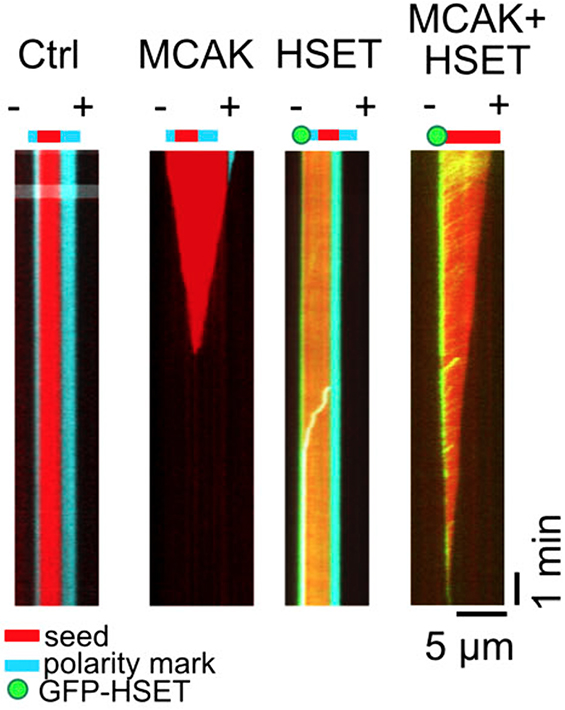Stephen Doster
-

Data science training program lands AAMC education award
Sep. 12, 2019, 10:06 AM by Bill Snyder A course that provides biomedical scientists-in-training at Vanderbilt University School of Medicine with the essentials of data science has won second place in the 2019 Innovations in Research and Research Education Award program sponsored by the American Association of Medical Colleges… Read MoreSep. 13, 2019
-

The plus and minus of microtubules
The plus and minus of microtubules Sep. 5, 2019, 9:00 AM by Bill Snyder The September issue of the Journal of Cell Biology featured the research of Marija Zanic and colleagues on the cover. The image is a montage of dynamic microtubule extensions (teal) grown in vitro from stabilized microtubule… Read MoreSep. 6, 2019
-

Zebrafish aid effort to regenerate damaged retinas
Zebrafish aid effort to regenerate damaged retinas Sep. 5, 2019, 8:59 AM by Bill Snyder The tiny zebrafish may hold the secret to regenerating damaged retinas in humans, Vanderbilt University researchers reported last week in the journal Cell Reports. Currently there are few effective treatments for retinal degenerative diseases… Read MoreSep. 6, 2019
-

A “rheostat” for cancer signals
Aug. 27, 2019, 8:30 AM by Sanjay Mishra WNT signaling pathways play important roles in cell growth, development and cancer.The classical or “canonical” WNT pathway and its atypical, “non-canonical” counterpart share a protein called DVL2 that “transduces” or converts one kind of signal to another. Now Jason MacGurn,… Read MoreAug. 30, 2019
-

Colorectal cancer researchers receive SPORE funding
Aug. 26, 2019, 4:07 PM Jordan Berlin, MD, left, and Robert Coffey, MD, lead the Gastrointestinal Specialized Program of Research Excellence. (photo by Susan Urmy) by Tom Wilemon Colorectal cancer researchers from Vanderbilt-Ingram Cancer Center (VICC) have been awarded a Specialized Program of Research Excellence grant from the National Cancer… Read MoreAug. 29, 2019
-

New appointees bring experience and vision to QCB Program
Tina Iverson (Pharmacology) and Vito Quaranta (Biochemistry) are stepping up to bat for students in the Quantitative and Chemical Biology (QCB) Program. They have recently been named Director and Associate Director, respectively, of the QCB, and will be taking over from Hassane Mchaourab (Molecular Physiology and Biophysics), who served as director since… Read MoreAug. 28, 2019
-

The Slow Road to Avoid Catastrophe
Figure reproduced under an Attribution-Noncommercial-Share Alike-No Mirror Sites License from C. Strothman, et al., (2019) J. Cell Biol., Published online August 16, DOI: 10.1083/jcb.201905019. Copyright 2019, C. Strothman, et al. Microtubules – protein polymers consisting of heterodimers of α- and β-tubulin – play a critical role in cell division, morphology,… Read MoreAug. 26, 2019
-

How nerves may lose their insulation
Aug. 22, 2019, 11:00 AM by Bill Snyder Charcot-Marie-Tooth (CMT) disease is the most common inherited disorder of the peripheral nerves in humans, affecting 1 in every 2,500 people. There is no cure for the disease, which causes severe disability due to disruptions in myelin, the protective insulation that covers… Read MoreAug. 23, 2019
-

Exceptional graduate students honored with Dean’s Award
by Leigh MacMillan Recipients of the 2019 Dean’s Award for Exceptional Achievement in Graduate Studies are (front row, left to right) Margaret Axelrod, Abigail Neininger, Alejandra Romero-Morales, Sheryl Vermudez, Demond Williams, and (back row, left to right) James O’Connor, Manuel Castro, Matthew Cottam, Matthew Wleklinski, Michael Doyle and Azadeh Hadadianpour. Read MoreAug. 23, 2019
-

Grant strengthens breast cancer research efforts
Aug. 22, 2019, 9:29 AM by Tom Wilemon Breast cancer researchers at Vanderbilt-Ingram Cancer Center (VICC) have secured a fourth round of continuous Specialized Program of Research Excellence funding. The SPORE in Breast Cancer grant from the National Cancer Institute (NCI) is for a five-year period totaling $11.6 million. Applications… Read MoreAug. 23, 2019